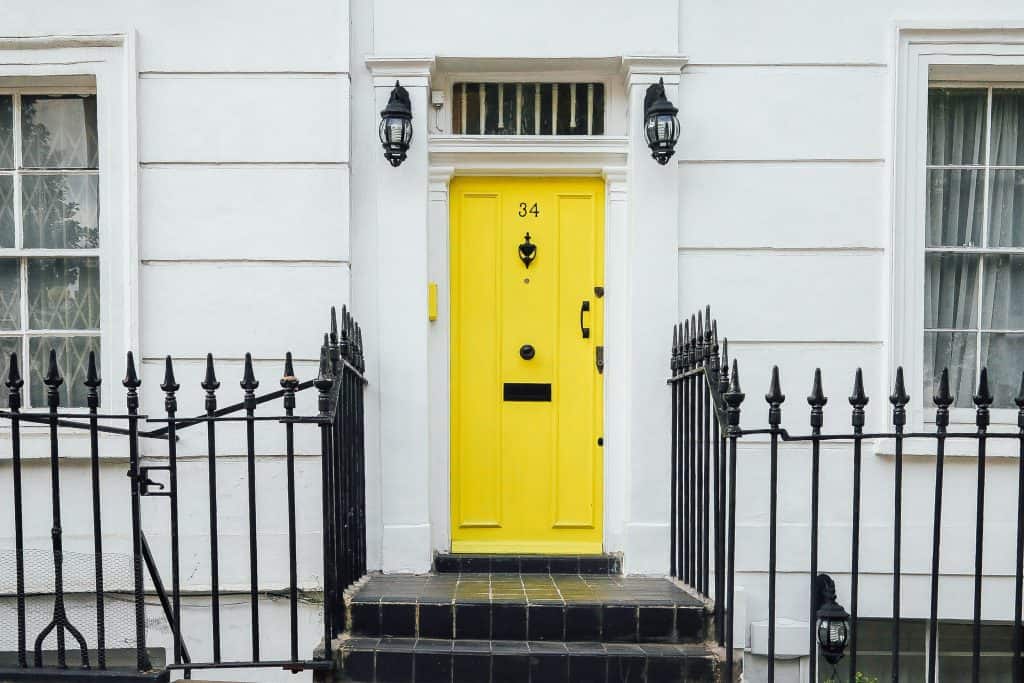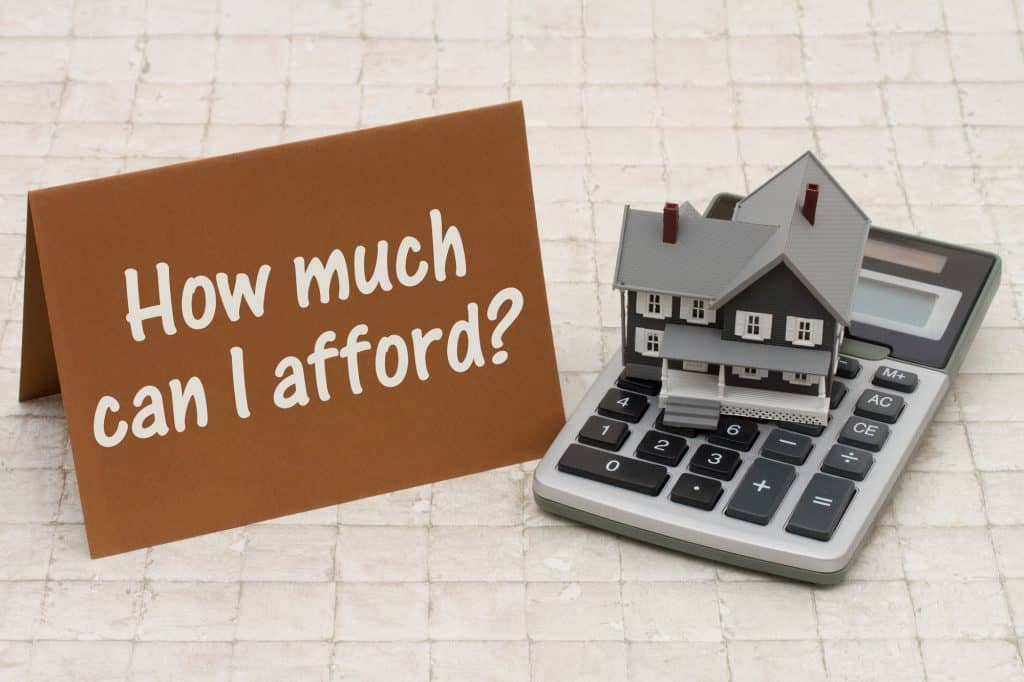
Some say it is the American dream…owning your home. But before you can own your own home, you have to understand how to save money for a home.
There are also a number of costs associated with owning your own home. It is more than just a down payment and a mortgage.
Just because everyone tells you that owning a home should be on your adult list of things to do does not mean homeownership is for you.
Maybe you do not want to live in the same area for more than a year or two. You can be a person that does not want to have to be accountable for maintaining a home.
There are any number of reasons why renting could be better than owning. For everyone, whether to rent or buy is a personal decision that takes careful consideration.
This post may contain affiliate links. Please read our disclosure policies for more details.
The Costs of Homeownership
So you have decided homeownership is something you want. Now it is time to take the steps that will allow you to own your own home.
Let’s look at the cost of owning a home aside from a down payment and monthly mortgage.
Homeowners also have to pay property taxes and have homeowners insurance. Commonly, these 2 costs are added to your monthly mortgage payment.
As a homeowner, you will be responsible for all of your utility bills. As a renter, you may also pay utilities, but there are usually one or two that are paid by the landlord.
Homeowners may also need a monthly pest control service. Depending on where you live, you make require other services as well.
Buying a home may require you to buy your own appliances. Appliances will be included in the price of new construction, but are not usually included in the sale of a previously owned home.
Other Costs of Owning a Home
Maintenance costs will be a part of owning a home and if you do not prepare for them, you could be in for a shock when it comes time to replace things.
A new roof will most likely exceed $10,000 in cost. Furnaces are also pricey and these are just a few of the possible maintenance costs.
It is recommended that you set aside 1% – 2% of the value of your house annually for home repairs. Doing this will keep you prepared when it comes time to start replacing items that ware out.
This does not include your favorite paint color and the many other home decor changes that many new homeowners want to buy to decorate their newly purchased homes.
Now that you understand there are additional costs to owning a home and that you will not be able to call the landlord when things break, it is time to look at what a house will cost.
It easy to go online and see what homes sell for in your target area. If you know where you want to live, the next step is making sure you can afford to live in your desired area.

The rule of thumb for a mortgage payment is 28% of your gross income. Dave Ramsey says 25% of your take-home income.
Not sure what is right for you? Try setting the difference in what you are paying in rent and what your estimated house payment will be aside each month to see what it feels like to pay the mortgage each money.
Is money tight? Can you get by each month without worry about money or running out before the end of the month?
How Much to Save for a House
The down payment is a big part of buying a home. Many financial professionals recommend a 20% down payment. With 20% down, you will avoid paying PMI (private mortgage insurance).
Homes can be bought with a lower down payment. I put 10% down on my second house and 0% down on my first house.
How to Save Money for a House
How to save up for a house is not rocket science, but it can take time. Saving a down payment for a house is like most other types of savings plan.
How much of a down payment do you need for your purchase? How long do you have to save the money? Divide the amount you need for the down payment by the time you have to save it and you will know how much you need to save each month.
That is it in a nutshell. Do you want to speed up the process of saving for a house? Start a side hustle. Learn how to buy and sell online. Become a freelancer.
Pick up a part-time job. Work more hours at your current job. This just scratches the surface for making extra money and saving for a house.
Now, let’s talk about the mortgage payment. If you did not pay for 100% of your house in cash (some people do), you are going to have a mortgage.

Qualifying for a mortgage means being creditworthy. The mortgage qualification process takes a few months or more and requires many documents.
Tax returns, bank statements, proof of earnings and proof of employment are some of the items you will need to provide to the lender.
A mortgage payment has 2 parts…the principle and the interest. Interest is what the bank charges you for borrowing their money.
What you pay for an interest rate depends on what is being charged at that time. But it also depends on your credit score.
The higher your credit score the more favorable your interest rate. Even if you don’t have the best credit score, you may still be able to qualify for a loan, but your interest rate will be higher.
Having a higher interest rate will cost you more over the life of the loan.
The best thing you can do to save yourself money when buying a home is to boost your credit score as much as possible.
Several things go into making up your credit score. First, make sure all charged off and past due bills are brought current.
If you have outstanding debt that is past due, paying it current will be required before you can take out a mortgage. Get used to paying your bills on time.
How to Save $10,000 in a Year
How to Pay Off Debt Quickly in 5 Simple Steps
How to Make a Simple Budget Using the 50/30/20 Method
If you have a high debt to income ratio, the lending bank may ask you to pay some of it off before they will lend to you.
Reducing your consumer debt and paying your bills on time go a long way towards getting your credit score as high as possible.
If you want to save more money, consider taking a loan out for less than 30 years. Some people say you should strive for having your house paid off in 15 years.
The shorter term will most likely mean a larger payment, but it will mean you will be paying less in interest because you will not be owing for as long.
Another way to save money is to make extra principal payments when you have extra money.
If you can make even one or two extra payments each year, you can save thousands of dollars as well as take years off the life of your loan.
How to Have a Low Mortgage Payment
Which combination of factors would result in the lowest monthly mortgage payment? A big down payment, a low-interest rate and a longer term.
In addition to these three factors, the price of the home will also be a big contributing factor in what your mortgage payment will be.
Want a low payment, but a smaller house. Now, you also have to consider that the length of the term could have you paying back a lot more money in the long run.
How to Save Money for a House in 6 Months
You can come up with a down payment in 6 months or less for by doing these things:
- Reduce your spending as much as possible to allow more money to be saved for a down payment
- Challenge yourself to bring in more money (work more hours, sell stuff, start a side hustle that has little or no startup cost)
- Look for special financing programs, such as; FHA, VA, USDA loans and more.
Our first home was an FHA loan guaranteed by Fannie Mae. This allowed us to put only 3% down. The builder allowed us to do work equity for the 3%.
This means that my husband and I did $5,000 worth of labor bring our out-of-pocket down payment to $0. These programs are normally available to first-time buyers only.
Conclusion – How to Save for a House
Owning a home is on the life plan of many people. Take some time to decide if it is right for you.
If it is, make sure your credit report is in order while you are saving the money for a down payment.
Make sure you have included money in the budget not only for a mortgage payment but also for insurance and taxes (if it is not part of the payment).
You will also need to budget for repairs and maintenance. Once you are prepared for these expenses, homeownership could easily be in your future.



